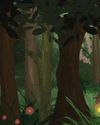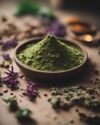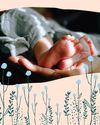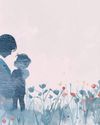
THE IMPORTANCE OF EMBRACING LOCAL BIODIVERSITY
There has been a growing trend toward biophilic design in architecture and interior design. The innate human connection to nature has numerous health and wellness benefits, including stress reduction, increased productivity, and improved well-being. The incorporation of plants is key to biophilia, but not all plants are created equal. Incorporating indigenous plants can have even greater benefits than simply adding any old plant to a space.
Indigenous plants are those that are native to a particular region or ecosystem. They have evolved to thrive in their specific environment, and are better adapted to the local temperature, rainfall, and soil quality. By incorporating these plants, we create a stronger connection to the local environment and biodiversity.
One of the key benefits of using indigenous plants is that they require less maintenance and resources, because they are already adapted to the local environment. This not only reduces the environmental impact of the design, but also makes it more cost-effective.
Another benefit is that they provide habitat and food for local wildlife, creating a more balanced ecosystem that supports a diverse range of species. This is particularly important in urban areas, where development has often led to the loss of natural habitats.
In addition to these ecological benefits, there is the cultural and educational value. By showcasing local plant species, we celebrate the unique biodiversity of a region and create a deeper connection to the local culture and history. This provides educational opportunities for visitors and residents to learn more about the local environment and the importance of preserving it.
This story is from the {{IssueName}} edition of {{MagazineName}}.
Start your 7-day Magzter GOLD free trial to access thousands of curated premium stories, and 9,000+ magazines and newspapers.
Already a subscriber ? Sign In
This story is from the {{IssueName}} edition of {{MagazineName}}.
Start your 7-day Magzter GOLD free trial to access thousands of curated premium stories, and 9,000+ magazines and newspapers.
Already a subscriber? Sign In

A Flower from THE HEAVENS
November 14 is Children's Day. This year, SARA BUBBER brings to you a world of forests, magical flowers, festivals, and some animals you may have never seen.

Meeting Phenomenal Women
The author, CHITRA BANERJEE DIVAKARUNI, is interviewed here by TARA KHANDELWAL and MICHELLE D'COSTA about her books on mythology, like The Palace of Illusions, which is a retelling of the Mahabharata from Draupadi's point of view, and The Forest of Enchantments, which is a retelling of the Ramayana, from the eyes of Sita. And there's The Last Queen, which is about Rani Jindan's life.

HERBAL TOOTH POWDERS: Rediscovering Ayurveda's Natural Secrets
SRAVAN BANDA presents a natural herbal tooth powder, offering a holistic approach to oral hygiene, harnessing the power of medicinal herbs.

The Dance of Light and Shadow Lessons from the Dolomites
ALAIN DESVIGNE explores the Dolomites, listed as a UNESCO World Heritage Site in 2009.

FINDING OUR WAY
A Polynesian Explorer's Journey of Discovery

The First Imprint: Understanding PTSD
CHRISTIANNA DEICHMANN is the Director of Education at the Association for Pre and Perinatal Psychology and Health (APPPAH), where she educates both professionals and parents on fostering the most nurturing environments for welcoming new life into the world.

The Tipping Point
In this final conversation of the series, J. FREDERICK ARMENT continues to talk with CHRISTINE JONES about promoting peace in the world.

UNLOCK YOUR POTENTIAL
Take The Brighter Minds Path To Cognitive Development

The Intrinsic Goodness of the Heart
DAAJI shares some thoughts on heartfelt acceptance and all it has to offer. He says, \"It is the heart's intrinsic goodness that allows us to accept everything as part of us.

How Does Fear Affect Our Roles as Mothers? - Neelam Shivhare explores some of the great ancient texts of India on motherhood, compares the behavior of Kaikayi and Yashoda
Neelam Shivhare explores some of the great ancient texts of India on motherhood, compares the behavior of Kaikayi and Yashoda, and realizes the importance of removing fear from our hearts in order to nurture our children.For young women like myself, who are future mothers, I trust we are on the path of becoming selfaware and brutally honest with ourselves. We are creative beings, never forgetting the gifts with which we have been bestowed— the love and tenderness, natural instincts, and intuition to feel the right path. It all lies in the mysterious meanderings of the heart. Are we really listening to our hearts, or confusing the bombarding information on social media with reality?